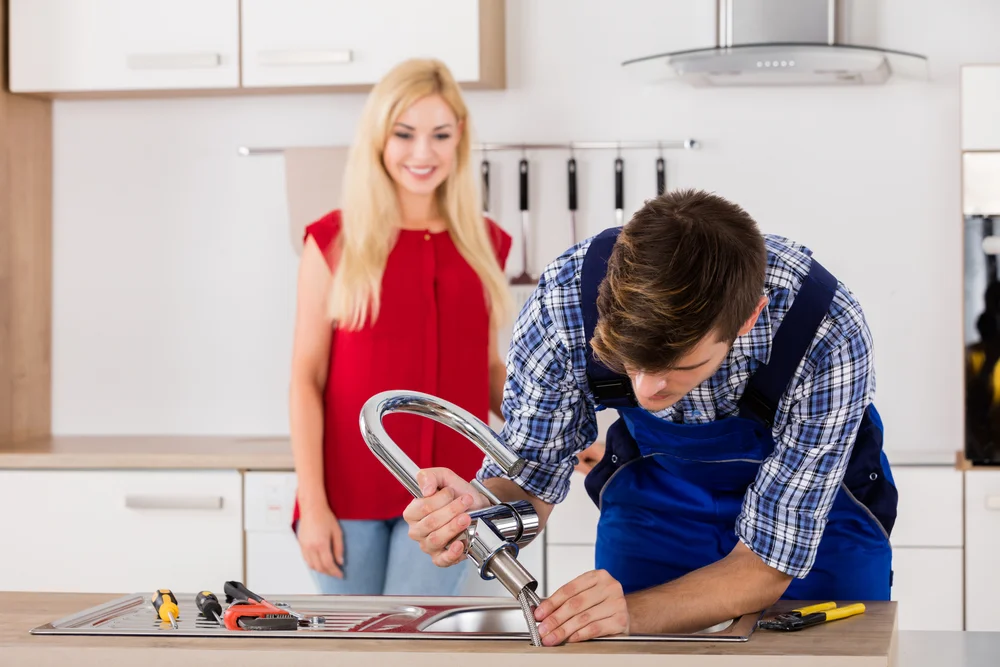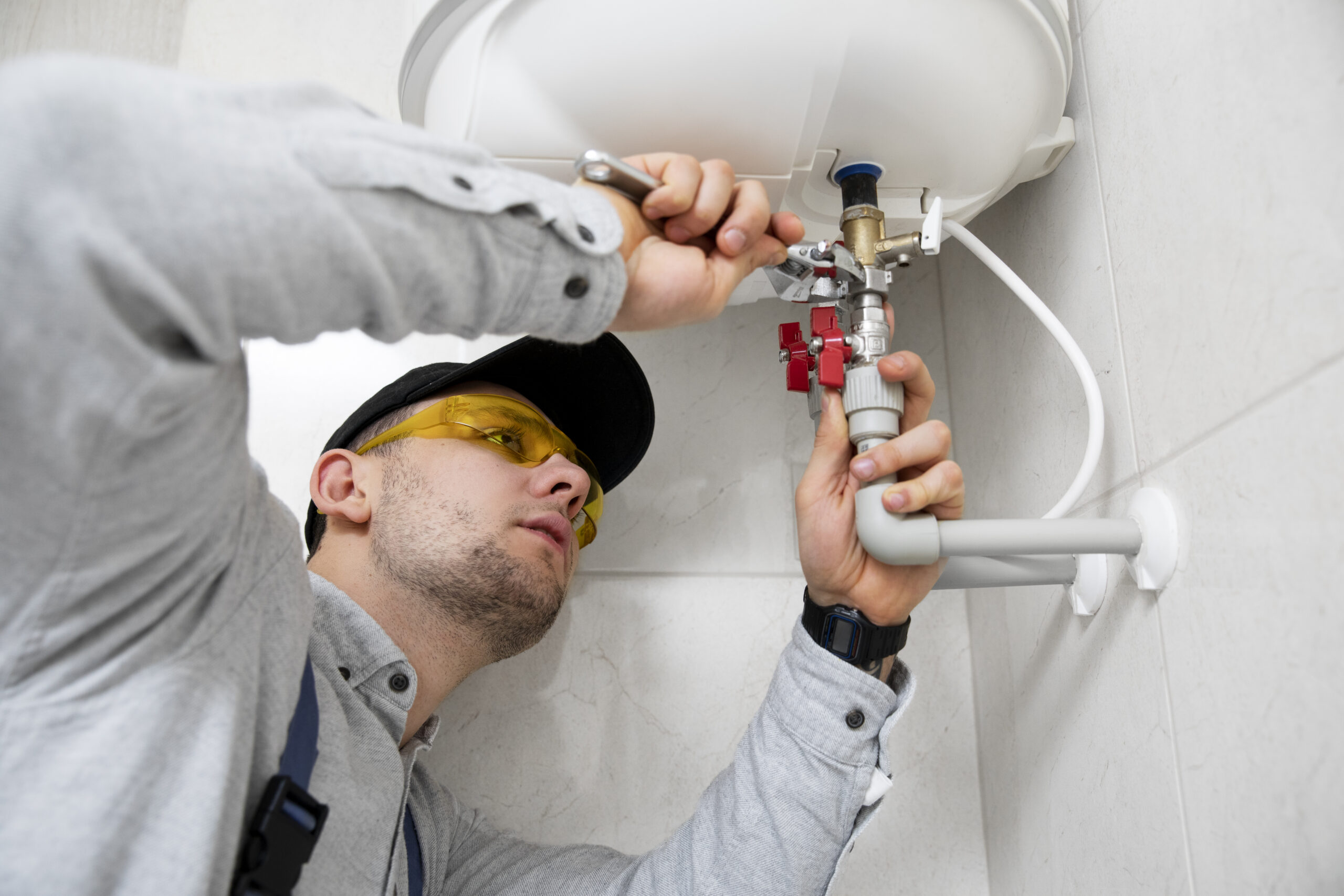Crucial Emergency Plumbing Advice to Follow Until Help Arrives
Crucial Emergency Plumbing Advice to Follow Until Help Arrives
Blog Article
Just about every person has got his or her own idea involving Expert Tips for Emergency Plumbing Repairs.

Plumbing emergency situations can strike at any time, triggering stress and prospective damages to your home. Whether it's a burst pipeline, a blocked drainpipe, or a leaky tap, understanding how to take care of the situation up until a professional plumbing professional gets here can conserve you from additional complications. This write-up offers necessary emergency situation pipes pointers to help you reduce damages and reclaim control during a pipes situation.
Switch off the Water
The initial step in any type of plumbing emergency is to shut off the supply of water. For local problems, such as a leaking faucet or toilet, turn off the valve near the fixture. When it comes to a major leakage or burst pipe, find your home's main water shut-off shutoff and transform it off right away. Understanding the location of these valves ahead of time can save useful time during an emergency.
Shut Off Your Water Heater
In particular emergencies, such as a ruptured pipe, it's wise to shut off your water heater. This stops getting too hot or damage to the device when water quits flowing. Switch off the power supply to the water heater (electrical or gas) and allow it cool down to avoid potential threats.
Temporarily Quit a Ruptured Pipeline
A ruptured pipe can bring about substantial water damages in mins. To mitigate the problem:
Call a specialist plumbing technician immediately to address the trouble permanently.
Have an Emergency Pipes Kit
Prepare a fundamental pipes emergency situation set to take care of minor problems efficiently. Your package should consist of:
Having these tools handy can make a significant distinction in your capability to manage emergencies.
Unclog Drains Safely.
A stopped up drain can be an irritating and untidy problem. Below's how to tackle it:.
If these methods don't work, avoid using excessive force, as it may worsen the blockage.
Manage Overflowing Toilets.
An overruning commode can create prompt turmoil. Right here's what you ought to do:.
Address Little Leakages with Short-term Fixes.
Small leakages can promptly end up being considerable problems if left uncontrolled. Utilize these short-term fixes until professional help arrives:.
While these repairs aren't permanent, they can aid decrease water loss and damages.
Take Care Of Frozen Water Lines Thoroughly.
In cooler environments, frozen pipes are an usual emergency. If you believe a frozen pipe:.
Know When to Call a Specialist.
While quick fixes can assist temporarily, specific pipes issues require instant expert attention. Call a plumbing if:.
Promptly getting in touch with an expert makes certain the concern is solved properly and avoids more issues.
Protect against Additional Damages.
Taking fast activity to reduce damage can save you time and money over time. Right here's how:.
Final thought.
Plumbing emergency situations can be frustrating, but with the appropriate expertise and tools, you can manage the situation properly until assistance arrives. By switching off the supply of water, dealing with tiny leaks, and using momentary fixes, you can minimize damages and maintain your home safe. Keep in mind, these ideas are temporary options; constantly speak with a certified plumbing professional to handle the source of the issue. Prep work and fast reasoning are your ideal allies in any plumbing emergency.
8 Helpful Tips for Managing Plumbing Emergencies at Home
If your plumbing system hasn’t failed once, wait for it because almost everyone has a story to tell. Sometimes, it could be simple emergencies such as a leaking pipe, a blocked cistern, or even a big burst pipe. In situations like this, you need to have some handy tips to save you some money and from possible damages.
Take care of minor issues early.
Sometimes, you could have avoided an emergency by taking proactive measures while it was still early. Some major plumbing emergencies can be a result of an ignored minor issue. We recommend that you have items like plumbing tapes and other related items. A plumbing tape can allow you to manage minor leaks before the plumber arrives.
Cut off the water supply.
This tip is essential in almost any type of leakage problem. For problems like minor leakages in the toilet or kitchen, turn off the supply that takes water to the affected pipes. If the leakage is a major pipe, you must shut off the supply valve to the entire building. This will help you avoid flooding your home and neighbors if you share a flat.
Know your plumbing system
Folks typically move into a new apartment without understanding the water supply around the building. This can prove disastrous if a water emergency arises and the plumber is far away. The previous tip will prove useless if you don’t practice this one. More importantly, know where your water shut-off valve is located – you’ll need that knowledge to prevent potential home floods.
Have some common handy tools
There are lots of plumbing emergencies that you can handle without hiring a plumber. That’s why you must keep some tools available always. Some tools that you can use to fix simple plumbing emergencies easily include plumbing tapes, screwdrivers, thread seal tapes, plungers, pliers, tape measures, and rubber gloves.
Insulate your pipes from cold
You’ll save yourself from many plumbing expenses if you protect your water pipes from the cold. This is because of the harmful effects that cold weather can have on your pipes. During winter, your pipes can burst from being overly expected to freezing temperatures. So, make sure insulators are there to keep the pipes working correctly.
Avoid practices that will clog your toilet.
Many people indulge in practices that can damage the plumbing system of the entire building. One of these is when they use their toilet to dispose-off garbage. They flush all kinds of things, such as paper towels, bandages, hairs, female sanitary products, etc., down the toilet. This will block your toilet in the long run, incurring unnecessary expenditures. Dump such waste in the trash instead.
Check your dials regularly.
Sometimes, there could be leakages in your home without noticing them in time. So, constantly monitor your water meter dial. If the dial is reading when there is nobody using water, this is an indicator that there is leaking. Check for leaks immediately. Call a plumber as soon as possible if you can’t find any.
https://www.constructionplacements.com/8-helpful-tips-for-managing-plumbing-emergencies-at-home/

I recently found that piece of writing on while doing a search on the internet. For those who appreciated our article please be sure to pass it around. Thanks a lot for your time spent reading it.
Call Report this page